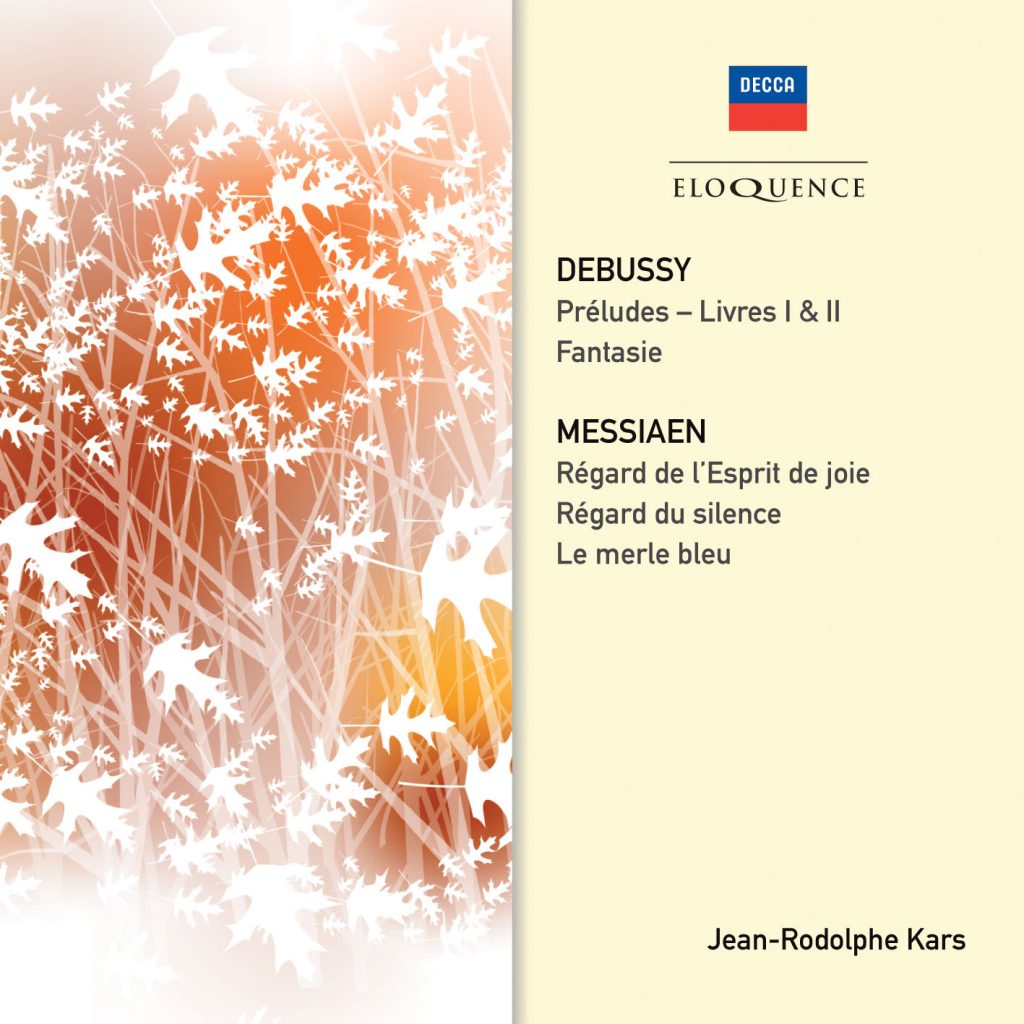
Indian-born, of Jewish-Viennese parents and raised in Paris, virtuoso pianist, Jean-Rodolphe Kars, converted to Catholicism in 1976 and was baptised in 1977. Mysteriously, in 1981, he put an end to his career as a pianist, entering the priesthood in 1986. During the late-1960s and early 70s, Kars made a few recordings for Decca, all of them gradually appearing on Decca Eloquence. They were, at the time of issue, highly praised for their imagination, colour and sensitivity, together with a great deal of panache and fearless virtuosity. Julius Katchen was one of Kars’s staunchest champions. Gathered here is all the French repertoire Kars recorded for Decca. At the centre of this 2CD set are the two books of Debussy Préludes. Three Messiaen pieces come from a Liszt/Messiaen LP (the Liszt has already been released on Decca Eloquence 480 3150), and there is also Debussy’s early Fantasie for piano and orchestra.
CLAUDE DEBUSSY
Préludes – Livres I & II
Fantasie
Jean-Rodolphe Kars, piano
London Symphony Orchestra
Sir Alexander Gibson [Fantasie]
OLIVIER MESSIAEN
Régard de l’Esprit de joie
Régard du silence
Le merle bleu
Jean-Rodolphe Kars, piano
Recording Producers: Eric Smith (Messiaen); James Mallinson (Debussy)
Balance Engineers: Alec Rossner (Messiaen, Debussy: Fantasie); Stanley Goodall (Debussy: Préludes)
Recording Locations: Decca Studio 3, West Hampstead, London, UK, 13–17 July 1968 (Messiaen); Kingsway Hall, London, UK, May 1969 (Debussy: Fantasie); St. John’s, Smith Square, London, UK, 21–23 & 29 December 1970 – 1 January 1971 (Debussy: Préludes)
‘Kars is the nocturnal dreamer … Kars tells the tale of the two rival suitors in “La serenade interrompue’ with charming humour’ (Debussy Préludes) Gramophone
‘Kars achieves the joyful abandon of Messiaen’s Régard de l’Esprit de Joie by exercising the most exact control over every note: nothing is left to chance in this kind of playing, yet there is no loss of brilliance. … Le merle bleu is sunlit … a highly colourful piano piece, perfect grist for Kars’s pianistic mill.’ Gramophone
‘Kars plays with great refinement of touch … I cannot imagine [the piece] enjoying more eloquent advocacy. The recording is extremely well balanced.’ (Debussy Fantasie) Gramophone
